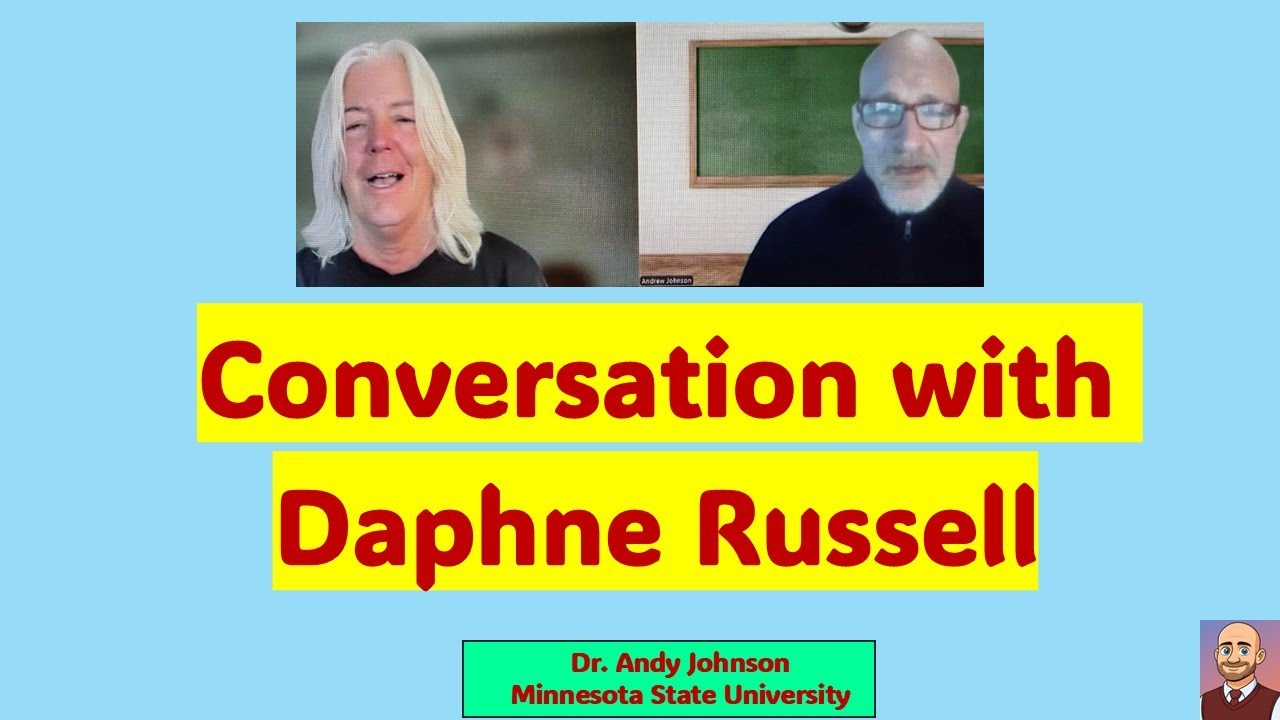Daphne Russell from Books Save Lives interviews Anne Doan, a retired bilingual education researcher about the effects of Russell's program throughout Santa Cruz County.
Daphne Russell the Education Evolutionist: Rebuild trust in reading, thinking, and self worth
Dr Andy Johnson presents mini-lectures related to literacy, learning theories, educational psychology, and specific research-based teaching strategies. He is a Reading Specialist as well as a Distinguished Faculty Scholar and Professor of Literacy at Minnesota State University.
